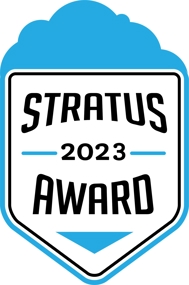
Cloud Penetration Testing
Protect your cloud infrastructure with tailored penetration testing designed to identify and mitigate risks before attackers exploit them
Protect your cloud infrastructure with tailored penetration testing
Cloud Penetration Testing involves conducting authorised simulated cyber-attacks against cloud-based systems, such as those hosted on Amazon AWS, Google Cloud Platform, or Microsoft Azure. The primary objective is to evaluate the security posture of your cloud environment, identify common security misconfigurations, and assess publicly accessible services that could be exploited by malicious actors.
Award-winning expertise
Our cyber security team continues to achieve multiple vendor certifications, highly respected industry accreditations and international accolades, demonstrating the breadth, depth and impact of their services.

Our Cloud Penetration Testing Services
![]()
Configuration review
A detailed review of your cloud configuration settings to ensure alignment with security best practices and identify potential vulnerabilities.
![]()
Advanced threat simulation
Simulate advanced persistent threats (APTs) to understand how your cloud infrastructure would withstand a sophisticated cyber attack.
![]()
Compliance assessments
Evaluate your cloud environment against industry standards like ISO 27001, GDPR, and PCI DSS to ensure compliance and reduce risk.
![]()
Detailed reports
Provide a detailed report on all of the identified security misconfigurations with clear and actionable remediation advice.
Benefits of Cloud Penetration Testing Services
The benefits of cloud penetration testing are increased technical assurance and a better understanding of the attack surface that your systems are exposed to. Cloud systems, whether they are infrastructure as a service (IaaS), platform as a service (PaaS), or software as a service (SaaS), are prone to security misconfigurations, weaknesses and security threats just as traditional systems are.
We will:
• Assess your cloud estate to identify risks, potential vulnerabilities, and security gaps.
• Demonstrate the impact of exploitable vulnerabilities and leverage them to determine the level of compromise an attacker could achieve.
• Provide a detailed report on all the identified security misconfigurations with clear and actionable remediation advice.
• Enhance your understanding of your cloud infrastructure, what services are exposed to the public and assurance on the security posture of your estate.
The cloud security problem
Despite cloud providers enhancing their security controls, the responsibility of securing your organisation's workloads in the cloud ultimately falls on you. The 2022 Cloud Security Report highlights that cloud misconfigurations remain the top security risk, followed by insecure interfaces, data exfiltration, unauthorised access, and compliance issues.
Cloud Testing, whether through configuration reviews, penetration tests, or both, focuses on the following key areas:
• External attack surface enumeration: Identifying all possible entry points into your cloud environment, including O365, web applications, storage blobs, S3 buckets, SQL/RDS databases, Azure Automation APIs, AWS APIs, remote desktops, and VPNs.
• Authentication and authorisation testing: Ensuring users within the environment operate on the principle of least privilege, are protected by robust multi-factor authentication, and use strong, secure passwords.
• Virtual machines / EC2 testing: Assessing the security of virtual machines, including network security groups, encryption, patch management, and public accessibility.
• Storage and database security: Evaluating storage and database permissions, ensuring only authorised users have access, and checking for security best practices.
• Infrastructure vulnerability assessment: Identifying traditional infrastructure vulnerabilities within the cloud, such as inadequate patching or default credentials that could lead to security breaches.
• Network segmentation and ACLs: Testing access control rules to ensure that critical infrastructure is correctly isolated and the risk of a network compromise is minimised.
• Container security: Reviewing the configuration of cloud-based container services, such as Azure Kubernetes Services (AKS) and Amazon Elastic Kubernetes Service (EKS), to identify potential privilege escalation risks.
LRQA consultants are certified in the major cloud platforms, including Azure, AWS, and Google Cloud. We continuously enhance our cloud security methodologies through internal workgroups focused on developing new tools and sharing knowledge.

Why work with us?
Specialist expertise
Our cyber security experts hold multiple vendor certifications and accreditations as well as highly respected industry accreditations from CREST, the PCI SSC, ISC2, BCI, Chartered Institute of IT, and NCSC CHECK.

Industry leadership
We lead and shape industry on advisory boards and councils including the PCI SSC Global Executive Assessor Roundtable and CREST councils in the Americas, Asia, EMEA and the UK. We are certified by a range of governing bodies including the payment card industry and are approved as a Qualified Security Assessor.

Everywhere you are
Operating in over 55 countries, with more than 250 dedicated cyber security specialists and over 300 highly qualified information security auditors across the world, we can provide a local service with a globally consistent dedication to excellence.

Award winners
We have been recognised for the breadth and depth of our services – including the TEISS Award for Best Penetration Testing Service in 2024, Enterprise Threat Detection and Cloud Security awards at the Security Excellence Awards 2024 and the Stratus Award for Best Managed Cloud Security Service.

Partner with LRQA
At LRQA, we excel in delivering tailored cloud security assurance. Our team of penetration testers specialise in various disciplines, ensuring that your specific needs are met by experts with relevant experience. We avoid one-size-fits-all solutions, focusing instead on your unique security objectives and concerns.
Our consultative approach ensures you are kept informed throughout the entire process, and our reporting is designed to be both flexible and comprehensible, catering to both technical and business stakeholders. Whether you need detailed technical insights or a high-level overview of business risks, we provide the information you need to make informed decisions.
Our passion for cyber security drives us to stay at the forefront of industry developments, ensuring that the cloud penetration tests we deliver are of the highest quality and tailored to your organisation’s needs.
The world leader in CREST accreditations
We are proud to be the only organisation in the world with a full suite of accreditations from The Council of Registered Ethical Security Testers (CREST).
Our team of consultants have achieved the highest accreditations for Penetration Testing, Red Teaming, Incident Response services and Threat Intelligence. In addition, we were also the first organisation to be CREST accredited for our Security Operation Centre services.
Providing Security Testing to a leading UK financial investment company
This client had previously experienced a high number of vulnerabilities, from which LRQA was able to help. The services implemented provided the client with a proactive and threat-led approach; informed by our offensive and threat intelligence teams to protect against the latest industry threats.
View case study








